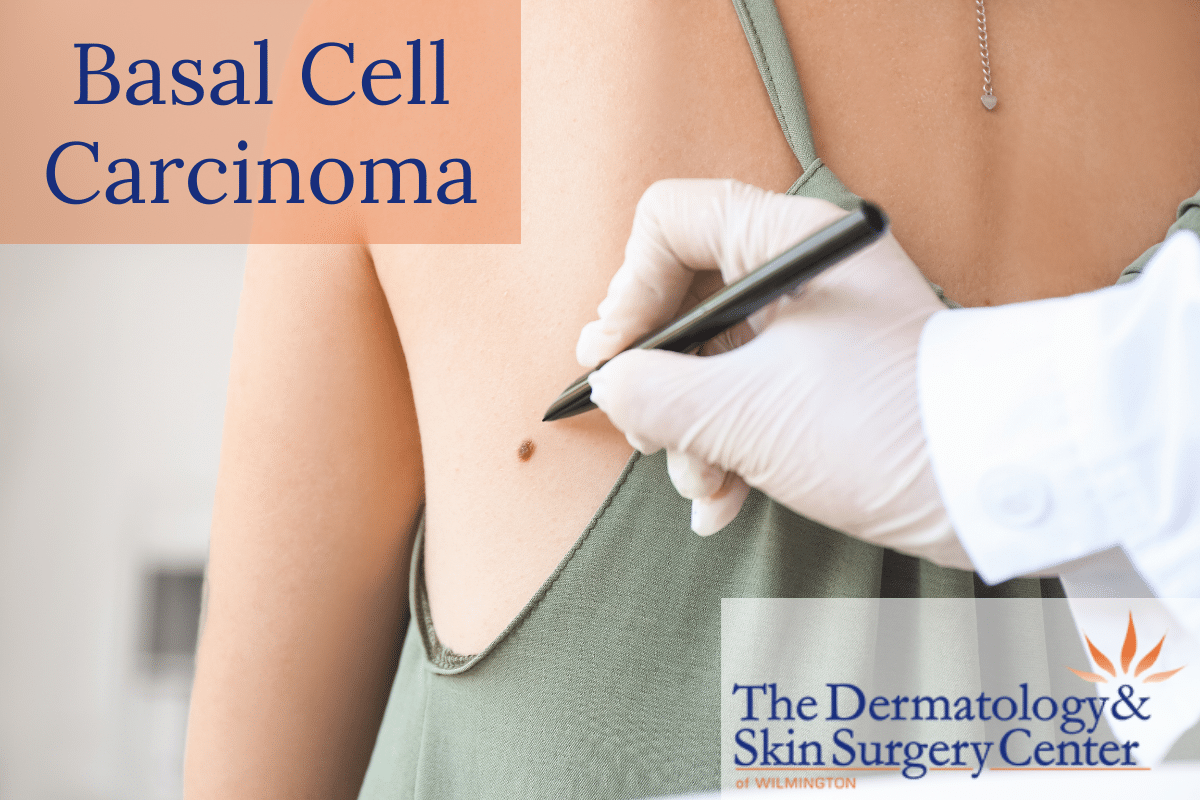If you had to guess how many Americans are diagnosed with squamous cell carcinoma (SCC)…

All About Melanoma: Causes, Risks, Warning Signs, & Prevention
Have you noticed a few weird spots or suspicious moles on your body? Though you may not have anything to worry about, you should know that melanoma is on the rise amongst Americans.
In fact, according to The Skin Cancer Foundation, it’s estimated that the number of new melanoma cases diagnosed in 2020 will increase by almost 2 percent. (And will continue to rise over the next few years.)
If you’re wanting to know more about melanoma, keep reading as we cover what this skin cancer is, what causes it, major risk factors, warning signs, and the steps you can take to prevent melanoma.
All About Melanoma Skin Cancer
What is Melanoma?
Melanoma is a type of skin cancer that begins in melanocytes, otherwise known as the pigment-producing cells that give the skin, hair, and eyes their color.
It develops when these cells start to grow out of control and though melanoma is less common compared to other skin cancers, it tends to be a more dangerous type because it can spread quickly if not caught and treated early.
Treatment for melanoma, as well as other types of skin cancers, may include Mohs surgery, which is a highly effective treatment option for melanoma, squamous cell carcinoma, and basal cell carcinoma.
Melanoma Causes
Like other cancers, melanoma is typically caused by DNA damage, resulting in an uncontrolled overgrowth of cells. This overgrowth crowds out normal cells, making it hard for the body to work and operate normally.
Major Risk Factors
In most cases, DNA damage is from unprotected or excessive UV exposure, either from the sun or tanning beds. According to the Melanoma Research Foundation, nearly 90% of melanomas are thought to be caused by exposure to UV light and sunlight.
That said, other risk factors include:
- Genetics – 1 in every 10 patients has a family member who also had melanoma skin cancer.
- Weakened immune system – this makes it harder for the body to catch and take care of mutated cells.
- An abundance of moles – more moles means a higher chance for melanoma.
- Fair skin – melanoma is found more frequently in people with fair skin, light eyes, and light or red hair.
- Skin cancer history – people who’ve previously had skin cancer have a higher risk of developing melanoma.
Common Signs of Melanoma
When it comes to melanoma, detecting this dangerous skin cancer early is crucial for effective treatment. Fortunately, if caught early enough, most cases are easily treatable and highly survivable.
To stay ahead in the game, we recommend checking your skin at home once a month (or more), as well as having your skin checked yearly by a dermatologist.
Typical warning signs of melanoma include:
- Change on the skin, like a new spot or a shift in color, size, and shape.
- Spot, sore, or mole that refuses to heal and becomes painful or tender.
- Hard red lumps or flat red spots.
- Spots that start to bleed, look crusty, or begin to itch.
- Moles that have irregular, rugged, notched, or blurred edges.
When in doubt, refer to The Skin Cancer Foundation’s ABCDEs of Melanoma for additional tips on spotting skin abnormalities.
Melanoma Prevention
So what can you do to prevent melanoma skin cancer? While there’s no exact way to stop melanoma from developing, there are many steps you can take to reduce your risk.
Wear broad spectrum sunscreen with at least SPF 30 (even on cloudy days).
Take care not to burn by wearing protective clothing, seeking shade when necessary, and avoiding reflective environments, such as water, snow, and sand.
Stay away from tanning beds and avoid excessive outdoor tanning.
For more information on skin cancer prevention, take a look at our 5 simple ways to prevent skin cancer all year round.
Do you have concerns about your skin?
If you have any questions about skin cancer or concerns about the health and wellbeing of your skin, the experts at The Dermatology Skin Surgery Center of Wilmington are here to help.
Early detection is key to effectively treating skin cancers like melanoma, so make an appointment today for your yearly skin check up or simply get in touch to ask our team about skin cancer prevention.
Contact The Dermatology and Skin Surgery Center of Wilmington for all of your Mohs surgery, cosmetic, and general dermatology needs. Since 2001, Skin Surgery Center’s fellowship-trained Mohs surgeons and board-certified dermatologists have provided patients with exceptional treatment outcomes. Our professional staff is ready to provide you with the thoughtful, competent care that you deserve in our state-of-the-art facilities. Book your appointment today.



